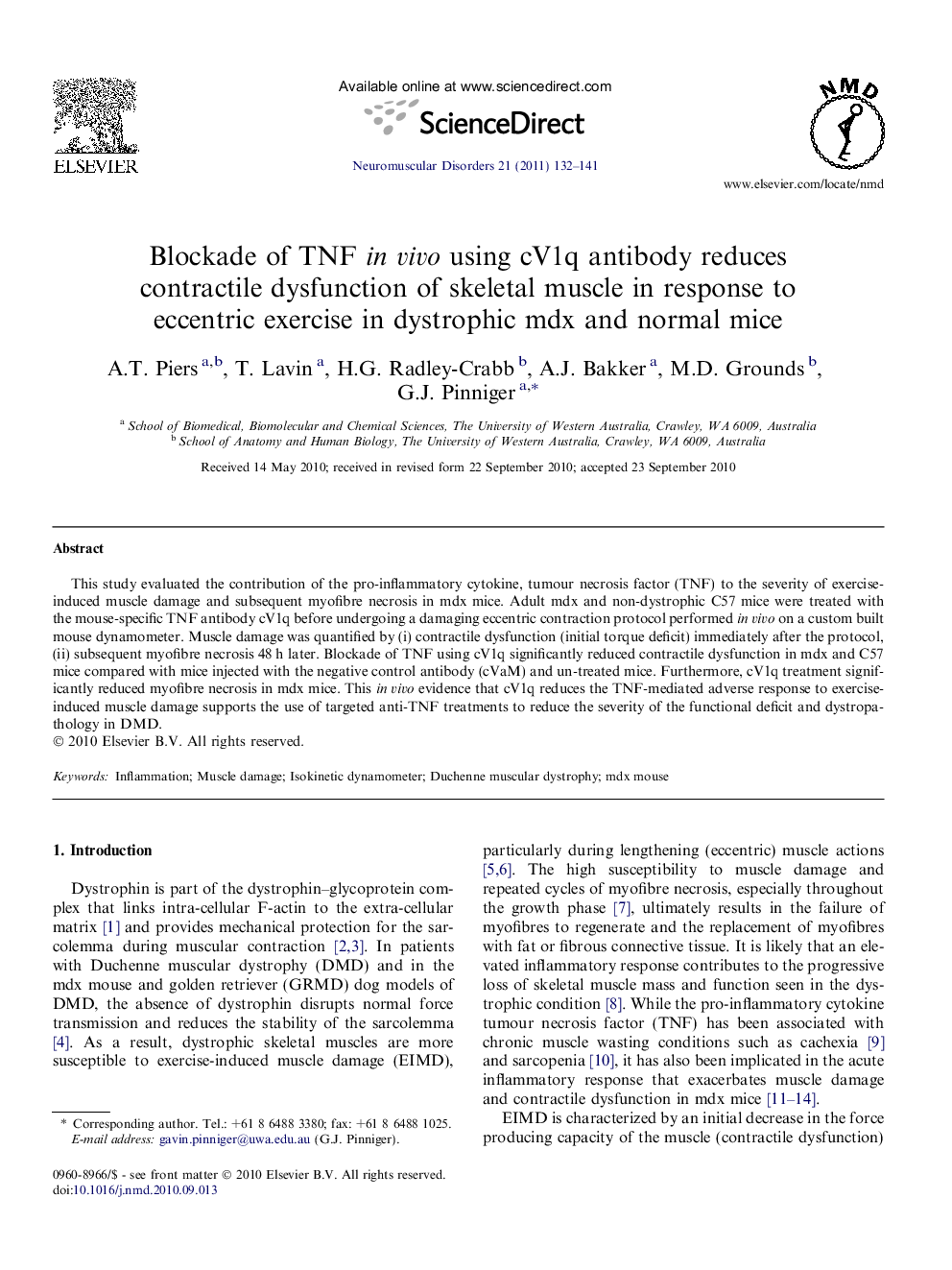| کد مقاله | کد نشریه | سال انتشار | مقاله انگلیسی | نسخه تمام متن |
|---|---|---|---|---|
| 3079833 | 1189318 | 2011 | 10 صفحه PDF | دانلود رایگان |
عنوان انگلیسی مقاله ISI
Blockade of TNF in vivo using cV1q antibody reduces contractile dysfunction of skeletal muscle in response to eccentric exercise in dystrophic mdx and normal mice
دانلود مقاله + سفارش ترجمه
دانلود مقاله ISI انگلیسی
رایگان برای ایرانیان
کلمات کلیدی
موضوعات مرتبط
علوم زیستی و بیوفناوری
علم عصب شناسی
علوم اعصاب تکاملی
پیش نمایش صفحه اول مقاله

چکیده انگلیسی
This study evaluated the contribution of the pro-inflammatory cytokine, tumour necrosis factor (TNF) to the severity of exercise-induced muscle damage and subsequent myofibre necrosis in mdx mice. Adult mdx and non-dystrophic C57 mice were treated with the mouse-specific TNF antibody cV1q before undergoing a damaging eccentric contraction protocol performed in vivo on a custom built mouse dynamometer. Muscle damage was quantified by (i) contractile dysfunction (initial torque deficit) immediately after the protocol, (ii) subsequent myofibre necrosis 48Â h later. Blockade of TNF using cV1q significantly reduced contractile dysfunction in mdx and C57 mice compared with mice injected with the negative control antibody (cVaM) and un-treated mice. Furthermore, cV1q treatment significantly reduced myofibre necrosis in mdx mice. This in vivo evidence that cV1q reduces the TNF-mediated adverse response to exercise-induced muscle damage supports the use of targeted anti-TNF treatments to reduce the severity of the functional deficit and dystropathology in DMD.
ناشر
Database: Elsevier - ScienceDirect (ساینس دایرکت)
Journal: Neuromuscular Disorders - Volume 21, Issue 2, February 2011, Pages 132-141
Journal: Neuromuscular Disorders - Volume 21, Issue 2, February 2011, Pages 132-141
نویسندگان
A.T. Piers, T. Lavin, H.G. Radley-Crabb, A.J. Bakker, M.D. Grounds, G.J. Pinniger,